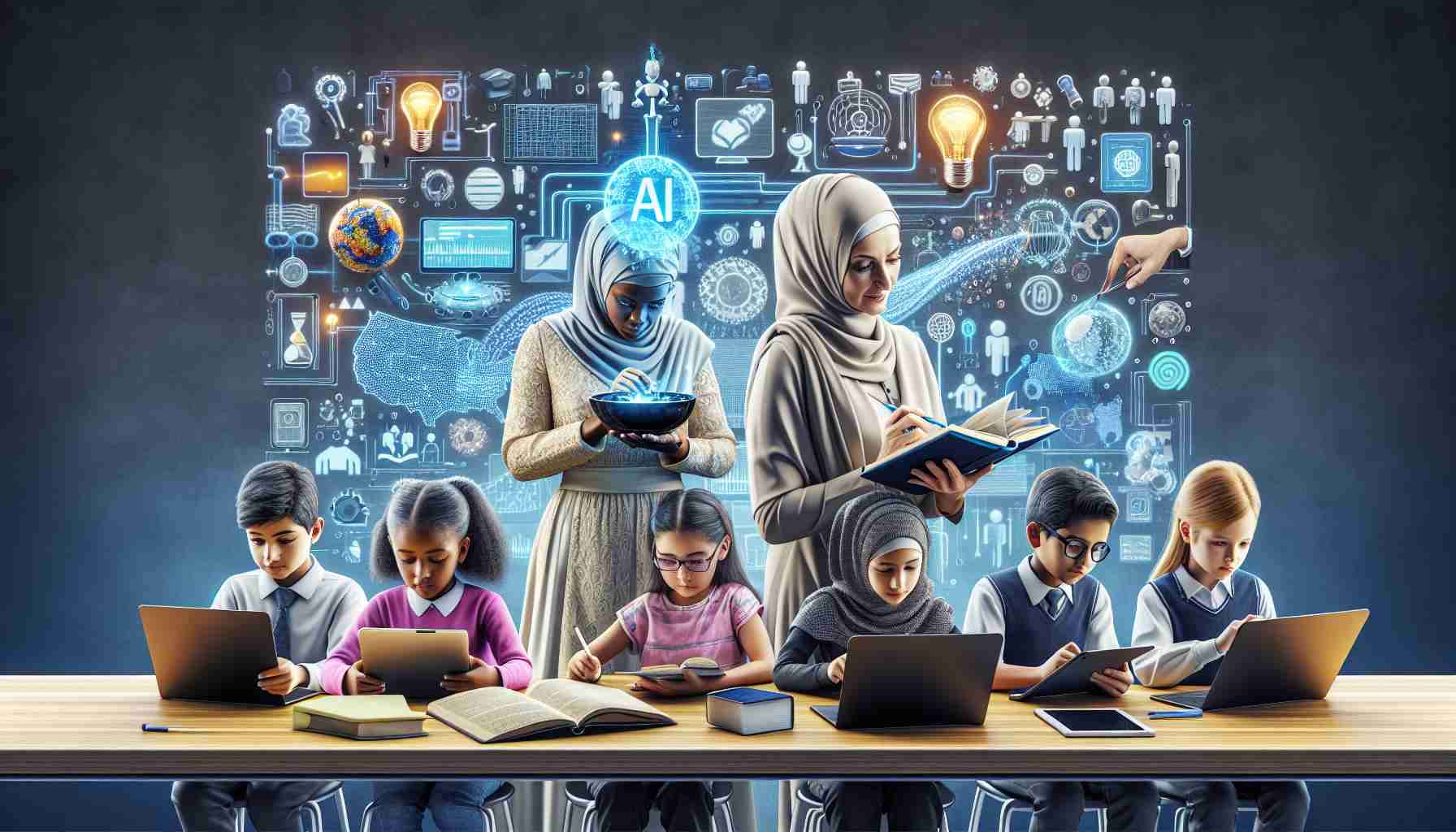
Revolutionizing Learning with Advanced AI Technology
The buzz around AI-enhanced learning devices continues to grow, with education companies showcasing cutting-edge products at the 2024 World Artificial Intelligence Conference. Parents like Zhao are turning to these AI learning machines to assist their children with schoolwork. Exploring the conference with her child, Zhao is intrigued by the variety of intelligent learning tools available for students of all ages.
The Future of Education Technology
Companies such as Xueersi, NetEase Youdao, and Yuanli Technologies are at the forefront of AI integration in education. The immersive demonstrations of AI models and educational products signify the rapid evolution of smart learning technology, which is increasingly utilized across various educational settings. The Chinese education hardware market has witnessed substantial growth, with forecasts predicting it to exceed 100 billion yuan by 2025.
Unveiling Innovative AI Capabilities
One of the highlights at the conference is Xueersi’s MathGPT model, featuring a new math question search tool called “Nine Chapters Instant Query.” Unlike traditional homework assistance apps, this tool guides students by analyzing the question’s concepts before encouraging independent problem-solving, thereby fostering critical thinking skills and enhancing math proficiency.
Personalized AI Learning Experience
Visitors are drawn to Xueersi’s learning machine, which offers features like interactive dialogues, language learning, and emotional recognition systems. The updated “Little Thought Dialogue” incorporates a memory system to maintain continuity in conversations and an emotion recognition function to adjust responses based on the child’s mood. This personalization extends to providing growth reports and parenting advice based on conversation records.
Empowering Educators with AI Assistants
During the “AI Industry Innovation and Investment Development” session, Good Future’s CTO Tian Mi shares insights on leveraging advanced AI models to support teachers and students. The vision for the future includes equipping every teacher with an AI teaching assistant and every student with an AI study companion to optimize the learning experience.
The visual at the forefront of AI in education at the World Artificial Intelligence Conference symbolizes the transformative impact of AI on the educational landscape.
Maximizing the Potential of Advanced AI in Education
As the integration of Artificial Intelligence (AI) in education progresses, it raises crucial questions about the future of learning enhancement. In exploring this innovative terrain, several key inquiries emerge to better understand the implications and challenges associated with leveraging advanced AI technologies in educational settings.
Key Questions:
1. How can AI technology adapt to individual learning styles and pace to provide a truly personalized educational experience?
Answer: Advanced AI systems can employ adaptive algorithms and data analytics to tailor learning materials, pacing, and assessments to individual students, ensuring a customized learning journey that maximizes retention and understanding.
2. What are the ethical considerations surrounding the widespread adoption of AI in education, particularly concerning data privacy and algorithmic bias?
Answer: The deployment of AI in education necessitates transparent data handling practices, robust privacy safeguards, and continuous monitoring to mitigate biases inherent in algorithms and ensure fair and equitable educational opportunities for all learners.
3. How can educators effectively integrate AI tools into their teaching practices to augment rather than replace traditional methods of instruction?
Answer: Training programs and professional development opportunities can empower teachers to harness AI technologies as valuable aids in classroom management, assessment, and individualized student support, enhancing overall instructional quality and efficiency.
Challenges and Controversies:
While the potential benefits of Advanced AI in education are vast, several challenges and controversies remain that require careful consideration and strategic mitigation strategies.
– Challenge: Resistance to Change
Educators and institutions may face resistance to incorporating AI technologies due to concerns about the loss of human touch in teaching and the displacement of traditional educational practices.
– Controversy: Equity and Access
The uptake of AI-powered learning tools should be accompanied by efforts to bridge the digital divide and ensure that all students, regardless of socio-economic background, have equal access to cutting-edge educational resources.
– Challenge: Continual Adaptation
The rapid evolution of AI necessitates ongoing professional development for educators to stay abreast of new tools, trends, and best practices, emphasizing the need for flexible and dynamic learning environments.
Advantages and Disadvantages:
Advantages:
– Enhanced Personalization: AI algorithms can analyze individual learning patterns and preferences to deliver tailored instruction, feedback, and support, catering to diverse student needs.
– Data-Driven Insights: AI-powered analytics provide educators with valuable data on student performance, engagement levels, and areas for improvement, enabling targeted interventions and informed decision-making.
– Efficiency and Scalability: AI technologies streamline administrative tasks, automate grading processes, and facilitate remote learning, enhancing efficiency and scalability in educational delivery.
Disadvantages:
– Potential Job Displacement: The automation of certain educational functions by AI may raise concerns about job displacement among teachers and educational support staff, necessitating workforce retraining and adaptation.
– Privacy and Security Risks: The collection and utilization of sensitive student data by AI systems raise privacy and security concerns, necessitating stringent protocols and safeguards to protect confidentiality and prevent breaches.
– Pedagogical Limitations: AI tools, while valuable aids, cannot fully replace the nuanced interactions and emotional intelligence that human educators bring to the learning process, underscoring the importance of maintaining a balanced blend of AI and human-centered approaches.
For further insights into the evolving landscape of AI in education, visit World Economic Forum.
